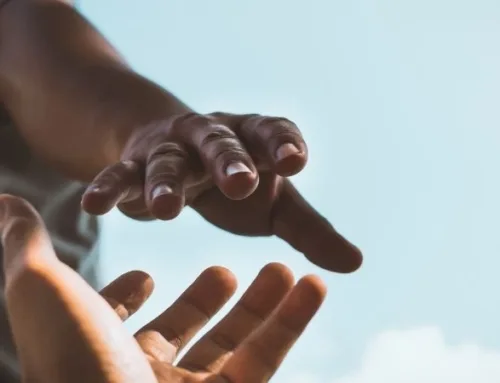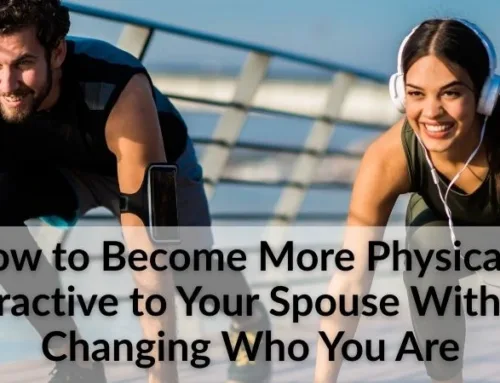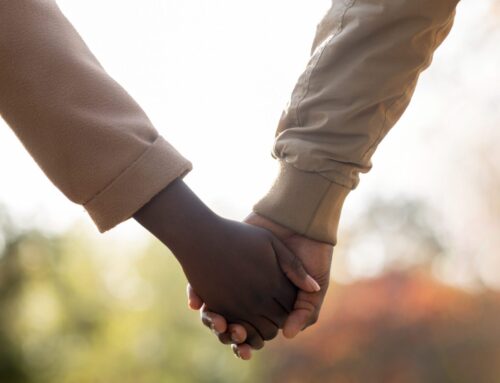How The Loss Of A Loved One Affects A Marriage
With David Mathews
My wife and I founded Spark Of Life, a grief recovery ministry. We work with thousands of people devastated by loss. We work with many couples who experienced the devastating loss of a child and we work with couples where one spouse lost someone in their family. And what we discovered in working with thousands of couples who are grieving is experiencing a loss of a loved one together affects a marriage. It can create quite a few marriage threatening problems. Or, it can go the other way. It can help a couple come together to actually strengthen their marriage.
To Learn More About Spark Of Life, click here.
I’m going to share three concepts and three action steps that can help your marriage come together when you experience the loss of a loved one. (These three principles and three action steps apply to all kinds of losses. Whether a couple loses a child, or one spouse loses a family member, or a spouse loses their child and their spouse lost a stepchild.)
Grief Is Unique For Each Person
Unique Relationships
The first essential concept is all grief is unique to the individual because their relationship to the one who died is unique. Everyone, even husbands and wives, when they lose the same person, they grieve differently.
For example, a couple loses a child. This could be a miscarriage, stillbirth, loss of an infant, or a loss of a toddler, or a teenager, or an adult child. Though all these losses are different, there’s one vital point that’s similar. All grief is unique because your relationship to the one who died is unique.
“All grief is unique because your relationship to the person who died is unique.”
Different Circumstances
There are also different circumstances surrounding a loss that contribute to the way a husband and wife might grieve. For example, someone could be driving a car when the accident happened and a child died in it. Or someone was at home with their child who died in a home accident.
Again, in all cases where a couple loses a loved one, this principle of each person grieving differently applies. Our relationship to the one who died is simply different. The husband’s or wife’s response to the loss will be greatly influenced by their relationship with their child.
For example, Bob and Mary lost a 15 year old child to a drug overdose. Bob has been an absent father for the most part. He travels every week for his job. He works hard to support his family, but this caused a huge problem in his marriage with Mary.
Bob was just beginning to stay home as their son was about to enter college, and then the son died. Bob was racked, not only with the pain of losing a son, but with guilt. Mary could resent Bob greatly. And even in a way, blame him for their son’s death.
You see, all grief is unique because a person’s relationship to the situation and to the one who died is different and unique.
Grief Is In Context Of One’s Entire Life
Our second concept is all grief is in context of one’s entire life. It’s in context with other losses one has experienced. Everyone has a story. Our responses to life’s problems are shaped and influenced by our story.
In the Marriage Helper Workshops and coaching I do, couples grow when they begin to understand more of their spouse’s story and their own story. Everyone’s actions make sense in context.
“Couples grow when they begin to understand more about their spouse’s story and their own story. Everyone’s actions make sense in context.”
Many men were raised to keep all their emotions in, you know, “big boys don’t cry,” that sort of thing. Now, back to the story about Bob and Mary…
When Bob was a teenager, his grandfather died. Bob’s dad, who had lost his father, hardly cried. In fact, he went back to work the day after the funeral showing no emotion. “Big boys don’t cry,” And, “Be strong for others,” was the message Bob learned while he was growing up.
So years later, Bob and Mary lost their son. Not only does Bob feel guilty that he wasn’t home very much, he doesn’t show much emotion. And he has to be strong for his family. And so he goes back to work much sooner after the funeral than his wife does. Mary can’t believe his response, his lack of crying. She cries continually, “Does Bob not care?” Mary is weak for crying all the time.
Then Sunday comes. Bob and Mary have been churchgoers their entire life. As Bob is getting ready for church, Mary, that first Sunday is still in bed. She doesn’t want to go to church. But, Bob insists on it. They fight. Now, not only are they dealing with the death of their beloved son, now their marriage starts to spiral out of control…
So what is the solution? I want to share with you some action steps that you can mentally and verbally take.
There Are 3 Steps You Can Take To Come Together During Loss
1. Give Each Other Permission To Grieve
Number one, permission. Give each other permission to grieve in their unique way.
Bob and Mary came to a Spark of Life, grief recovery retreat. They also learned about Marriage Helper. They came to a Marriage Helper Workshop. What a great combination. They learned that each person grieves differently and that they both deeply loved their son.
For more information about Marriage Helper Workshops, click here.
They simply needed to grieve in their own way, and they needed each other’s permission to grieve that way. And that is called respect.
2. Do Not Try To “Fix” Your Spouse
The second thing is do not try to fix your spouse, let them grieve. Be as quiet as you can be. Do not give them advice unless they ask for it. And if they do ask for advice, and you give it, do so very carefully.
Be there for them, for each other. In Marriage Helper terms, it’s called the PIES. Be there physically, intellectually, emotionally, spiritually, be there for them.
3. Listen To Their Pain
The third thing is to listen. For example, visualize a big old heart. It has two big ears on the side. And it has two eyes and a nose. But the heart has no mouth. This is how we need to listen to our spouse, especially in a time of grief. They need to give voice to their pain and have someone simply listen. Not giving advice and not talking validates their pain. They have permission to grieve the way they need to.
A couple of years ago, in 2017, a mother lost her teenage daughter and father. They lost their daughter to suicide. They came to one of our retreats.
At the retreat she learned to be honest. Here’s what she stated one day, “I am so angry at my daughter for taking her life. That if I died tonight and met her in heaven, I would not hug her, hug her right away. But I would tell her how angry I am with her.” Total honesty. Her husband was sitting next to her at the retreat. He listened to his wife and he didn’t say a word. He did not try to fix her. And in so doing, he was validating her feelings. He was respecting her unique way of grieving.
Earlier, before the retreat had started, he tried to fix her. He told us, he stated that, “she shouldn’t feel the way she feels.” But when we give voice to our pain, honest voice, and somebody listens to us, those feelings are lessened a little bit.
When someone, like our spouse, just simply “accepts me as I am,” I am validated. And when I give myself permission to grieve, to be honest, hope has an opening to seep in a little bit.
“When I give myself permission to grieve, to be honest, hope has an opening to seep in a little bit.”
There are days when that window is shut tight. But then there’s moments when that window opens a little bit and hope seeps in. The mother, mentioned above, has stated those words. She would obviously have hugged her daughter if she had gone to heaven that night. But, by being honest with those feelings, she actually made a huge step in what we call living forward.
Make Sure To Give Yourself Permission To Recover; To Live Forward
We are so sorry for your loss that you’re experiencing. We have one more thing to mention. Here’s the third essential thing I want to share with you: Give yourself permission, not only to grieve, but permission to recover. Permission to live forward with hope and purpose and meaning again.
And, Believe That Your Marriage Can Recover
And, expect that your marriage can recover. Your marriage not only can survive the loss, but your marriage can actually be better by drawing you closer together through your pain.
Know this, there is always hope to live forward after a devastating loss. Please contact our office for help. We are here to help you.
For more information about Marriage Helper Workshops, click here.







